Setting goals for 5-6 year olds is a wonderful way to support their growth, build confidence, and instill positive habits. This is my actually my favorite age of my children to set goals. They are still eager to learn and be helped.
For 5-6-year-olds, goals can be a bit more structured and challenging compared to younger toddlers. Align goals for their expanding cognitive, social, and physical abilities.
Be sure to make sure they are age appropriate. Ambitious enough that they will grow, but not be discouraged!
Here are 10 great goals for children in this age group, along with practical ways to make them happen.
1. Develop Early Reading Skills

Encourage your child to recognize letters, understand basic phonics, and read simple words or short sentences. We love LOVEVERY’s reading kits for fun games and activities in this domain.
Don’t let your child get too frustrated, and do not become frustrated yourself! Reading is a hard, hard skill. Make sure to emotionally and mentally prepare you child for the challenge…and prepare yourself for the required patience!
Benefits: Enhances literacy, boosts confidence, and lays the foundation for academic success.
Pro Tip: Make reading part of your daily routine and let them pick books they’re excited about.
2. Improve Fine Motor Skills
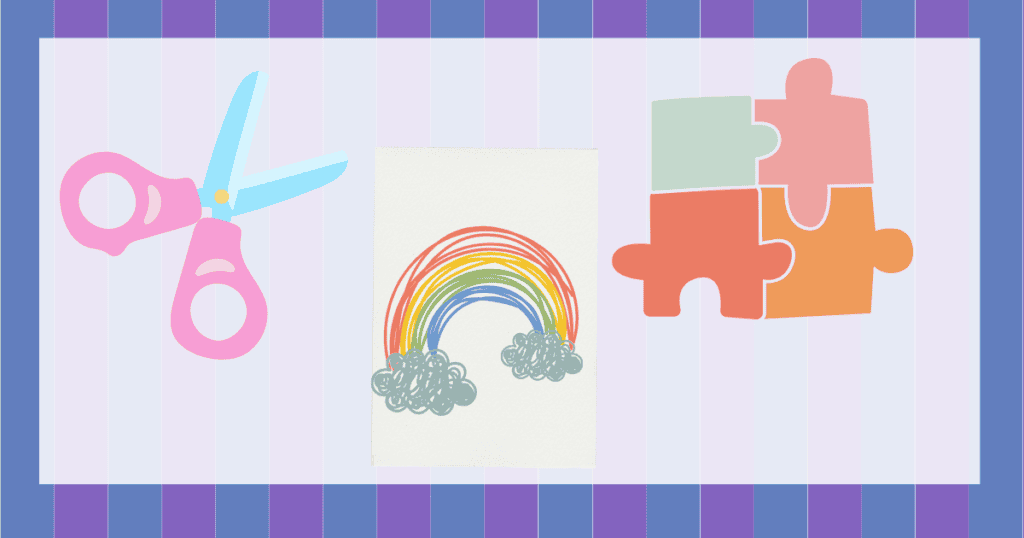
Engage in activities such as writing their name, using scissors, drawing detailed pictures, or completing simple puzzles.
Remember their little hands a still a little plushy and developing. Start by working on pencil grip. Remember to take it slow. They are working new muscles in their hands and minds.
Benefits: Strengthens hand-eye coordination, dexterity, and prepares them for more complex tasks in school.
Pro Tip: Keep a box of creative supplies on hand for easy access to fun, skill-building activities.
3. Learn Basic Math Concepts

Introduce counting beyond ten, simple addition and subtraction, recognizing numbers, and understanding basic shapes.
Use physical objects to help with these more complex ideas (subtraction and addition). I would suggest a game like “Hi-Ho-Cheerio”. Check out other useful and education games here that can help with math skills!
Benefits: Develops logical thinking, problem-solving skills, and numerical understanding essential for everyday activities.
Pro Tip: Use toys, snacks, or everyday objects for hands-on math practice—like counting crackers or sorting blocks by color.
4. Follow Multi-Step Instructions
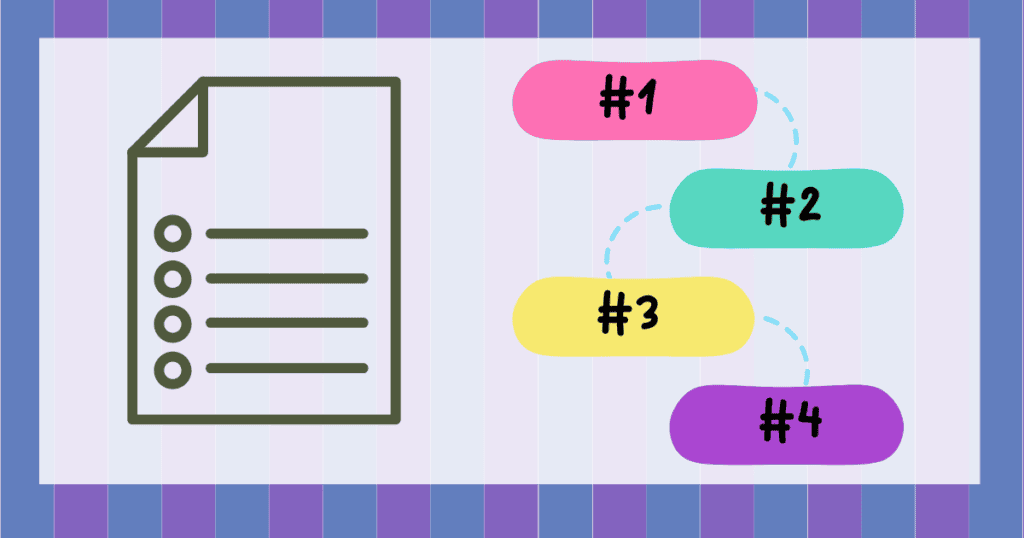
Practice giving your child tasks that require following two or three steps, such as “Pick up your toys, put them in the box, and then wash your hands.”
You can start by use sequencing cards to start out. Have cards that show “toys”, “box” and “washing hands”. Place these in place they can see them after you have given them instructions so they can reference them.
Benefits: Improves listening skills, attention to detail, and the ability to process and execute complex instructions.
Pro Tip: For practice, turn it into a fun game, like pretending they’re following a treasure map or helping a superhero complete a mission.
5. Foster Independence in Daily Routines
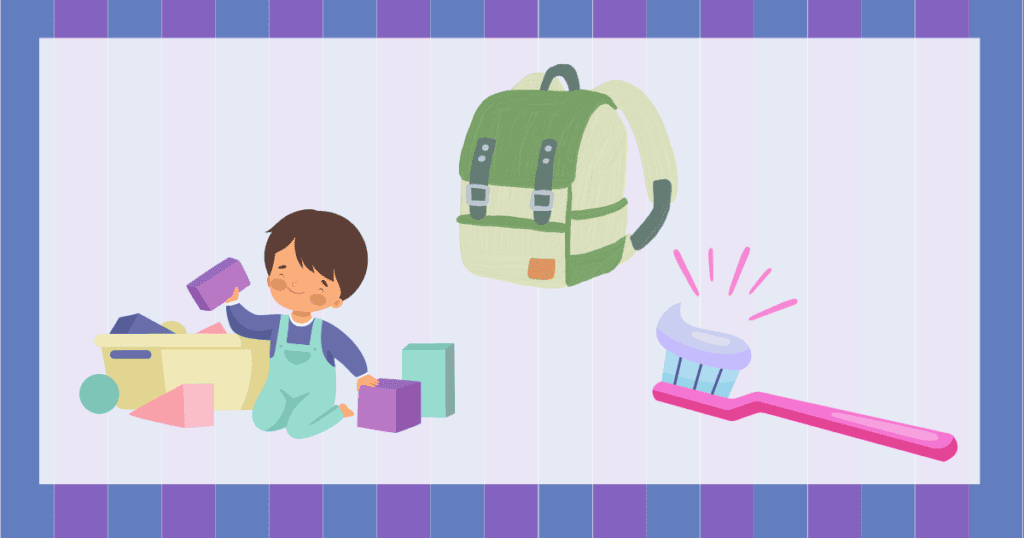
Encourage your child to manage tasks like getting dressed, brushing teeth, tidying up toys, and preparing their school bag.
In our house, we have our children pick out the snack, water, and fruit/vegetable for their lunches as I make their sandwiches.
Benefits: Builds self-reliance, responsibility, and a sense of accomplishment.
Pro Tip: Create a morning or evening checklist with pictures for easy reference.
6. Enhance Social Skills and Friendship Building
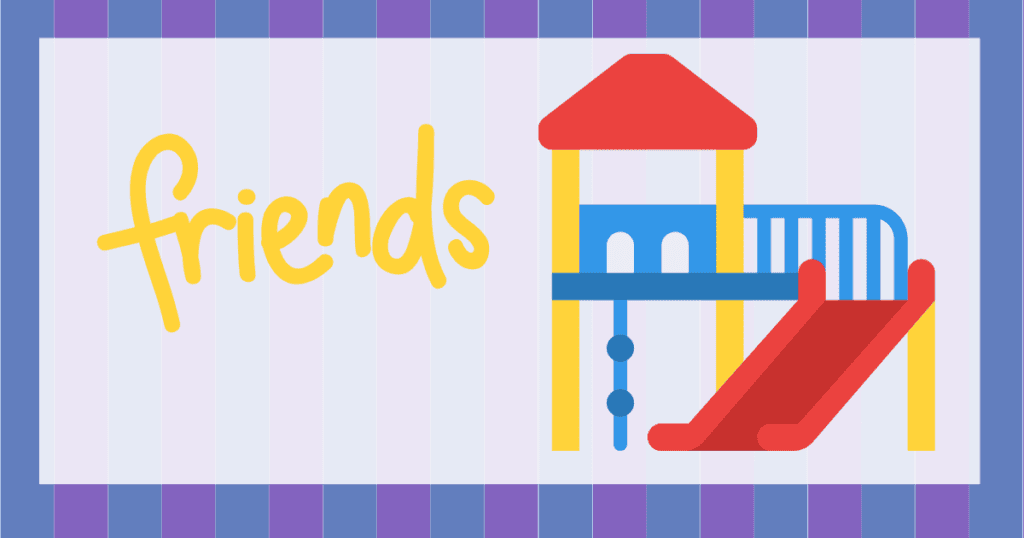
Facilitate playdates, group activities, and teach skills like sharing, taking turns, and resolving conflicts.
Again, I recommend reading “UnSelfie” to learn how to teach your children how to appropriately interact with children. It will also give you a good idea on what is developmentally appropriate for their age.
Make sure that they interact in lots of different scenarios. Please ask your children about their day. They will tell you situations they encountered and how they felt and reacted. You can help them know how to react better next time.
This is the beginning of communicating with your children, so take your time and be patient. Refrain from judgement and take the opportunity to teach correct actions and principles.
Benefits: Promotes empathy, cooperation, and the ability to form and maintain healthy relationships.
Pro Tip: Role-play common social scenarios to practice navigating friendships and teamwork.
7. Encourage Creative Expression
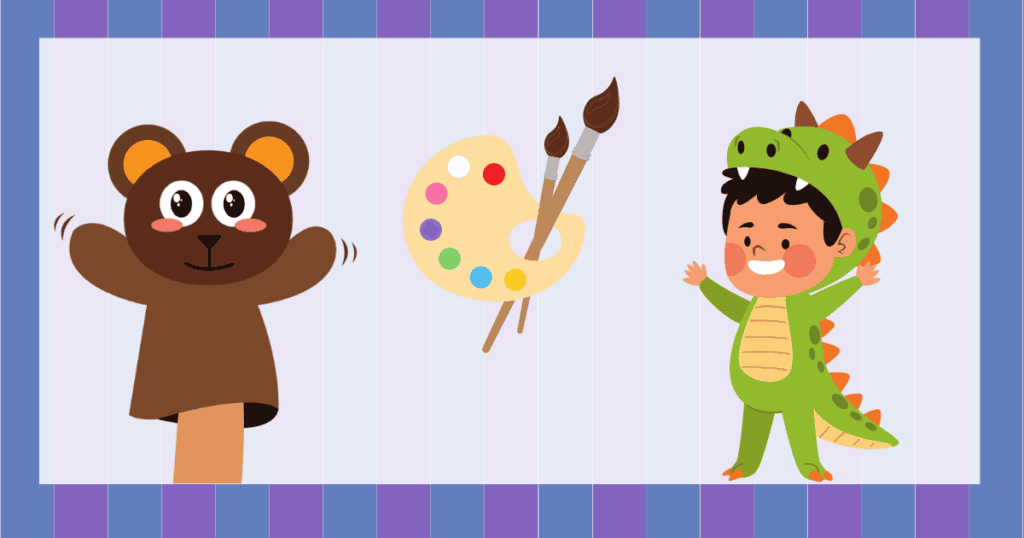
Provide opportunities for imaginative play, storytelling, drawing, painting, or engaging in music and dance.
We have a craft space in our home. They know their fun crafts and supplies need to stay there. I try not to interrupt them while they create. I want this to be a thinking and creation place in our home.
Inevitably, I have to break up fights sometimes in this corner, but I even try to let them resolve their own conflicts primarily on their own while crafting.
Benefits: Stimulates creativity, emotional expression, and cognitive flexibility.
Pro Tip: Dedicate a space in your home for creative activities, even if it’s just a small corner.
A great suggestion is also a puppet show space. This activity has so much longevity as they grow and develop. You will be able to see how their mind evolves and works as they put on these little “shows”.
8. Develop Basic Organizational Skills
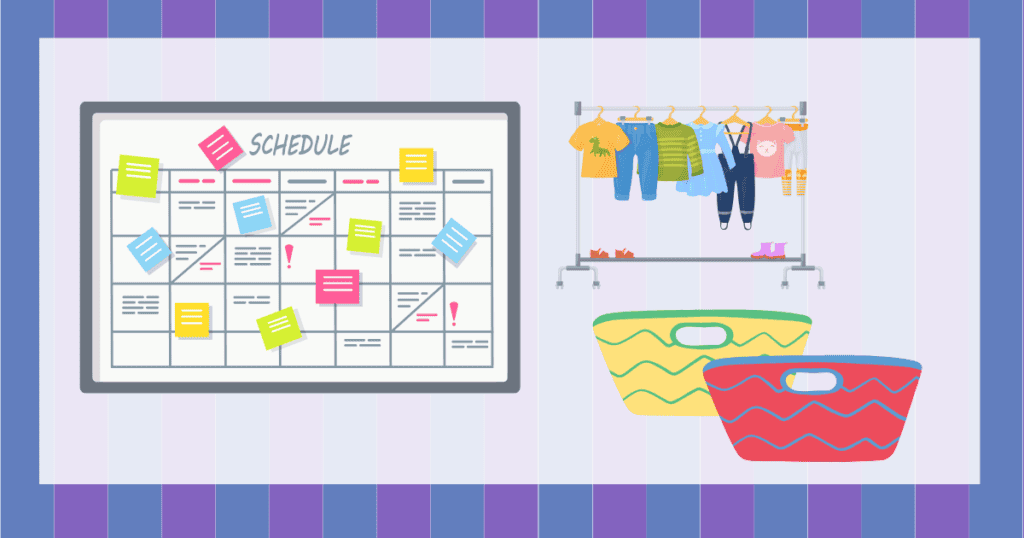
Teach your child to organize their belongings, keep track of their schedule, and manage simple tasks like cleaning their room.
We have a family calendar that the kids that are old enough help me fill out. This also is fun for them to see around the house and build anticipation for their upcoming activities.
Benefits: Enhances time management, responsibility, and prepares them for structured environments like school.
Pro Tip: Use labeled bins or baskets to make tidying up easier and more fun. Make this easy for them so they can succeed. I don’t even have my kids fold their clothes. I just require that they are in the right bins.
9. Promote Physical Activity and Coordination
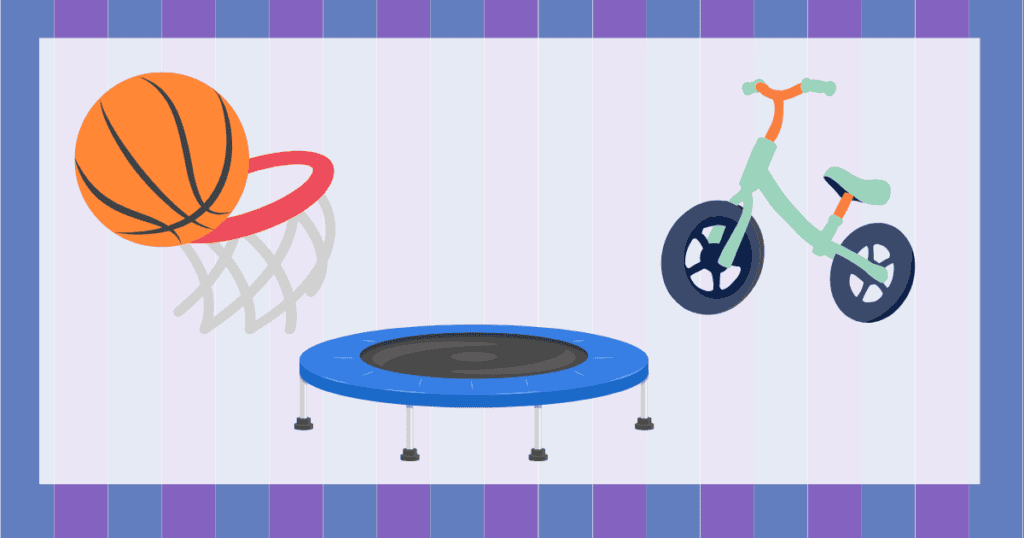
Involve your child in activities like riding a bike, playing ball games, dancing, or participating in gymnastics. This might also be a good time to involve your kid on a sports team.
I will say this, we do not participate in a lot of team sports at this age. We really focus on individual sports (gymnastics, karate, etc.) and putting them in skills camps. This way we don’t have to spend a lot of time at a location waiting for our kid to get their turn.
Benefits: Improves physical health, coordination, and overall motor skills.
Pro Tip: Plan a daily movement break, even if it’s just a quick game of tag in the backyard.
10. Cultivate Emotional Intelligence

Help your child recognize and name their emotions, understand others’ feelings, and practice appropriate emotional responses.
This is a skill that takes forever practice. Emotional intelligence is so, so important for setting your kids up for long-term success.
You can teach them breathing or other techniques. You can make sure they have a place at home where they can go calm down if they need to.
Benefits: Enhances self-awareness, empathy, and the ability to manage emotions effectively.
Pro Tip: Introduce a “feelings chart” and practice talking about emotions during calm moments.
Tips for Setting and Achieving Goals with 5-6 Year Olds
- Keep Goals Clear and Attainable: Choose specific, manageable goals that are appropriate for your child’s age and abilities.
- Make Goal Setting Interactive: Involve your child in choosing their goals to give them a sense of ownership and commitment.
- Incorporate Play and Fun: Integrate goal-related activities into playtime to keep your child engaged and interested.
- Be Consistent and Patient: Understand that progress may be gradual. Provide consistent support and encouragement without pressure.
- Model Desired Behaviors: Demonstrate the skills and habits you want your child to develop, such as organizing your own space or reading regularly.
- Create a Visual Progress Tracker: Use charts or stickers to visually represent your child’s progress toward their goals, making achievements tangible..
- Establish a Routine: Incorporate goal-related tasks into daily routines to create consistency and reinforce positive habits.
- Communicate Openly: Regularly discuss your child’s progress, listen to their feelings, and address any challenges together.
These goals are all about helping your 5-6-year-old thrive while making the process enjoyable and rewarding.
Here’s to an amazing year of learning, growing, and celebrating every little milestone along the way!
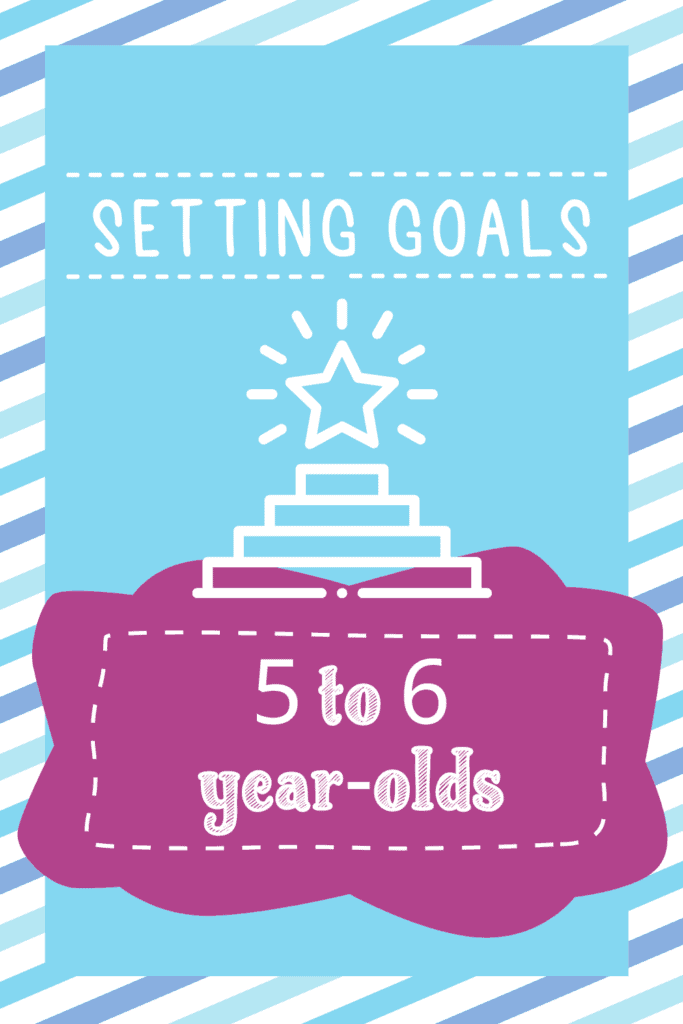
Enjoyed this? Be sure to check out…
Great Goals for 3-4 year olds | Set goals with your toddler
Goals for 7-8 year olds | Boost confidence and foster responsibility





Leave a Comment